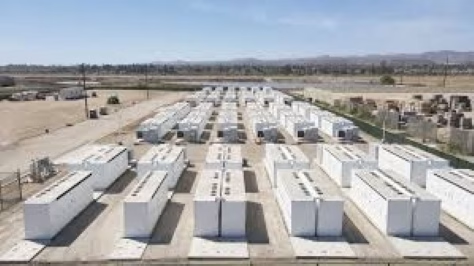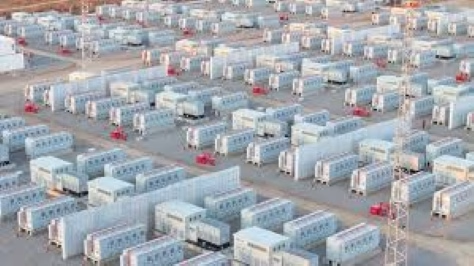Adani Group has announced its first large scale battery energy storage system (BESS) project at its Khavda renewable energy complex in Gujarat, India. The 1,126 MW/3,530 MWh battery storage project will be commissioned in March 2026 and goes to mark Adani’s entry into India’s growing BESS sector. The company‘s “historic” Khavda battery storage project is also the largest installation in India and one of the largest in the world.
Factsheet for Khavda Battery Energy Storage System (BESS) Project by Adani in India
Developer/Owner: Adani Group
Location: Khavda Renewable Energy Park in Kutch, Gujarat, India
Capacity: 1,126 MW power and 3,530 MWh storage.
Technology: Advanced lithium‑ion battery containers in more than 700 units.
Status: Project announced. Construction expected to follow. Commissioning set for March 2026.
Future Build-out: Targeting 15 GWh by March 2027 and 50 GWh within five years.
Significance: One of the largest single location BESS projects globally. Also, India’s largest to date.
Project Timeline
November 2025: Project announced. Initial planning and engineering works proceed.
Late 2025/Early 2026: Construction and battery container delivery phase expected to begin.
March 2026: Targeted commissioning of the first phase of the Khavda BESS.
2027: Expansion to reach 15 GWh.
2030: Full five-year build-out target of 50 GWh. This will potentially make it one of the largest BESS projects in the world.

Outlook on the Khavda Battery Storage Project by Adani in India
With Adani expected to start construction soon, Khavda battery storage project is also expected to serve as a blueprint for future hybrid solar/wind and BESS installations, especially in India. The planned build-out of 15 GWh by 2027 and 50 GWh in five years also points toward the company’s commitment to scale, despite recent legal woes related to bribery, securities fraud, and environmental clearance disputes.
Adani’s Battery Storage Foray and India’s Renewable Energy Landscape
India’s renewable energy sector is growing rapidly, pushed by solar and wind capacity. This creates intermittency challenges for the grid. Khavda renewable energy park in Gujarat hosting one of India’s largest solar and wind clusters, faces grid congestion and curtailment issues. Adani Group’s BESS project is strategic with the location as the installation will get the excess energy generated, store it, and later dispatch during peak demand periods.
The battery storage installation is also a diversifier of Adani’s portfolio from purely renewable generation to grid firming projects. Khavda battery storage project, now the largest in India is also a strong foothold for Adani in the country’s growing BESS market.

Leave a Reply